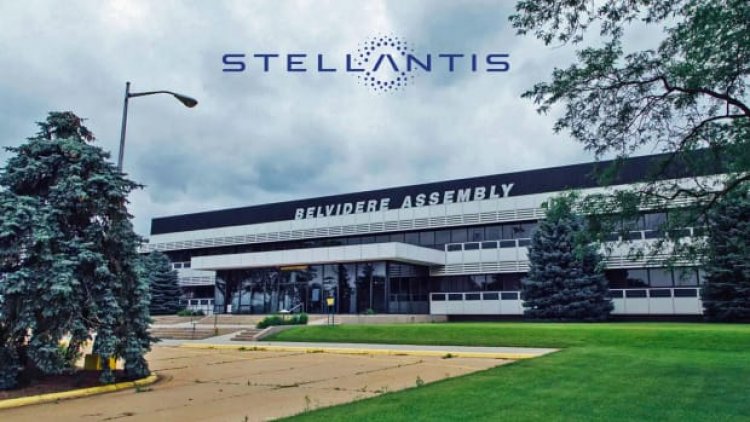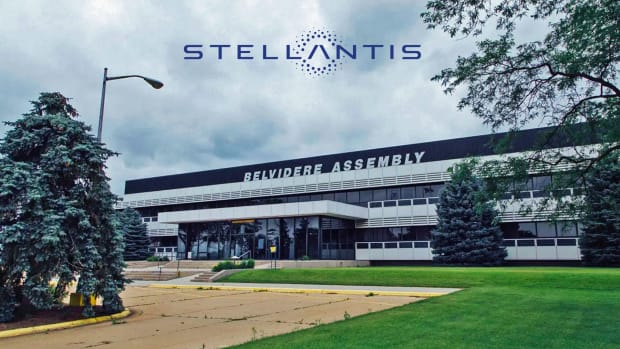Stellantis to Idle Long-Running Plant Due to 'Cost of Electrification'
Stellantis will idle its assembly plant in Belvidere, Ill. citing 'the increasing cost related to the electrification of the automotive market.'

Stellantis will idle its assembly plant in Belvidere, Ill. citing 'the increasing cost related to the electrification of the automotive market.'
President Lyndon Johnson was in the White House on July 7, 1965 and "(I Can't Get No) Satisfaction" by the Rolling Stones was at the top of the charts.
And on the same day the first car rolled off the line at the Belvidere Assembly Plant.
The facility, located in Belvidere, Ill., went on to produce a variety of models from the Chrysler, Jeep, Dodge and Plymouth brands. The Jeep Cherokee has been built there since 2017.
In April 2015, Belvidere was awarded a LEED (Leadership in Energy and Environmental Design) Gold Green Building System certification for meeting the highest environmental standards.
But now the Belvidere assembly plant will soon be silent. Parent company Stellantis (STLA) - Get Free Report said it was idling the facility where about 1,350 employees worked, as of Feb. 28.
'"Our industry has been adversely affected by a multitude of factors like the ongoing Covid-19 pandemic and the global microchip shortage, but the most impactful challenge is the increasing cost related to the electrification of the automotive market,” Stellantis said in a statement.
'Grossly Misguided'
The company, which announced last year it would spend $35.5 billion by the end of 2025 to expand its portfolio of electrified vehicles, said it is taking steps to “stabilize production” and “improve efficiency” in its North American facilities.
Stellantis said it "will make every effort to place indefinitely laid off employees in open full-time positions as they become available."
Ray Curry, president of the United Auto Workers, said Stellantis was "grossly misguided in idling this plant which has produced profits for the company since 1965."
And Cindy Estrada, UAW vice president and director of the Stellantis Department, said that the transition to electrification "creates opportunities for new product."
"Companies like Stellantis receive billions in government incentives to transition to clean energy," she said. "It is an insult to all taxpayers that they are not investing that money back into our communities.”
Why is this happening?
Heath Hofmann, electrical engineering professor at the University of Michigan, said he believes Stellantis is referring to the costs associated with retooling the plant to produce electric vehicles.
'New Battery Production Facilities'
"The powertrains of electric vehicles are quite different from ICE vehicles, and converting a plant is a significant expense," he said. "Stellantis may have decided they can't afford to retool all of their plants at once. This is a problem all automakers are dealing with."
He said that the Build Back Better Act provided funds for loans to retool factories.
"It is a transitory cost, however, once the retooling is finished this issue will go away," Hofmann said.
Timothy Johnson, professor of the practice of energy and the environment at Duke University, said there are two supply chain issues are at play with Stellantis’ decision.
"The first concerns the disruptions we’ve been hearing about for over a year and affects the availability of microchips and other components common to traditional gasoline automobiles and electric vehicles," he said. "U.S. and global vehicle manufacturers have cut back production and idled plants to deal with part shortages and delivery delays."
Johnson said that crunch seems to be easing somewhat, "though its effects linger."
The second supply chain issue, he said, is unique to the electric vehicle transition and the need to redesign entire supply chain networks.
"Not only do vehicle manufacturers need to build entirely new battery production facilities, they must do so quickly and on a large scale to meet their own sales goals and the policy incentives favoring domestic assembly that flow from this summer’s Inflation Reduction Act," Johnson said.
'A Disruptive and Expensive Proposition'
"That is an even more disruptive and expensive proposition than other supply chain concerns, and one that the automotive industry will live with for many years," he added.
Stellantis’ announcement is a result of this situation, he added, "which will have similar impacts on other industry players as battery production ramps up an order of magnitude beyond what we have already witnessed."
However, Philip Krein, a research professor at the Grainger Center for Electric Machinery and Electromechanics at the University of Illinois, said he found "Stellantis' comments about electrification costs puzzling."
"It has been well established that the manufacturing costs of electric cars, in a general sense, are lower than those of fuel-driven cars, even though the final vehicle price is higher because of the substantial added cost of batteries," he said. "It is also clear that EV interest and customer acceptance are growing well in the U.S. and in the Midwest."
Krein added that "one can speculate that they are referring to costs of plant conversion, but certainly that is not clear in the public announcements."
"It is well known that almost all global automotive OEMs are making massive investments on this conversion," he said, referring to original equipment manufactures. "Stellantis certainly emphasizes their own innovations in this space."
What's Your Reaction?


























































